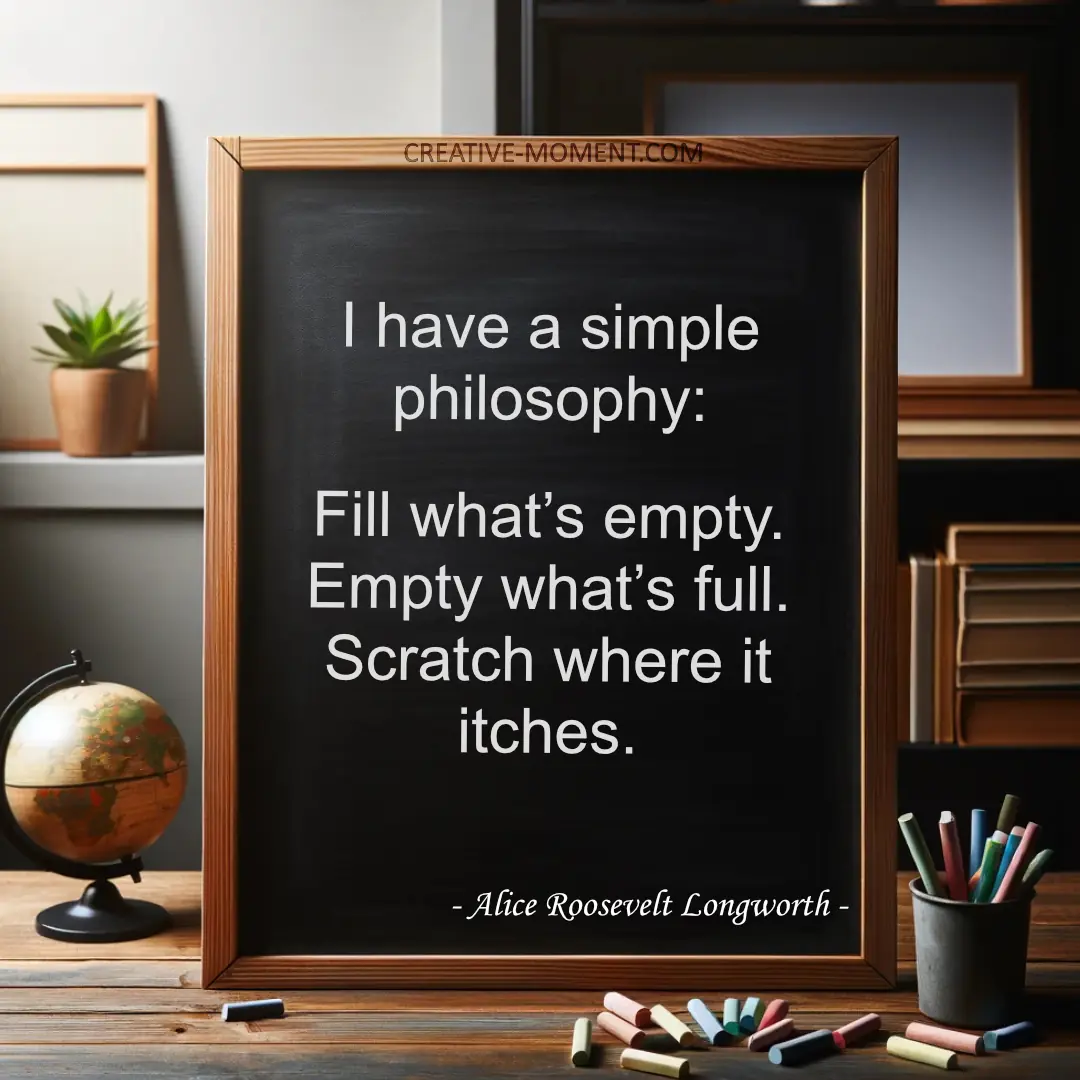Saying: I have a simple philosophy: Fill what’s empty. Empty what’s full. Scratch where it itches
Info
- Title: I have a simple philosophy: Fill what’s empty. Empty what’s full. Scratch where it itches
- Type: Sayings
- Category: Humor and Wit
- Print: Download as PDF for printing
The famous quote by Alice Roosevelt Longworth humorously yet insightfully describes an approach to life emphasizing simplicity and clarity: "I have a simple philosophy: Fill what’s empty. Empty what’s full. Scratch where it itches." As the daughter of U.S. President Theodore Roosevelt, she was known for her sharp wit, which influenced many of her memorable statements.
Origin and Usage of the Quote
The statement originates in English and is quoted exactly as follows: "I have a simple philosophy: Fill what’s empty. Empty what’s full. Scratch where it itches." Alice Roosevelt Longworth coined this phrase at the beginning of the 20th century, becoming renowned for her insightful commentary. Over decades, this quote has appeared in numerous speeches by prominent individuals and has been cited in various books on philosophy, humor, and life wisdom.
Meaning and Interpretation of the Quote
The quote by Alice Roosevelt Longworth is characterized by remarkable simplicity and clarity. Essentially, it underscores a pragmatic and straightforward approach to everyday challenges. The suggested actions are intentionally simple and directly implementable.
The phrase "Fill what’s empty" metaphorically points to the principle of recognizing and meeting existing needs before seeking complex solutions. The central idea here is that fundamental deficiencies should first be addressed to create room for growth and development.
The second part, "Empty what’s full," implies the necessity of letting go and decluttering. This refers not only to physical decluttering but also to clearing the mind of burdensome thoughts, prejudices, and habitual behaviors. This simple wisdom encourages clarity and focusing on essentials.
Finally, the phrase "Scratch where it itches" represents identifying and immediately addressing disturbing issues. It suggests an approach that directly targets concrete needs and problems without taking detours or employing overly complicated measures. Figuratively, it encourages direct confrontation with problems rather than postponement.
Alice Roosevelt Longworth humorously combines these three guiding principles into a life philosophy emphasizing both simplicity and practical common sense, remaining a universal and timeless recommendation to this day.

